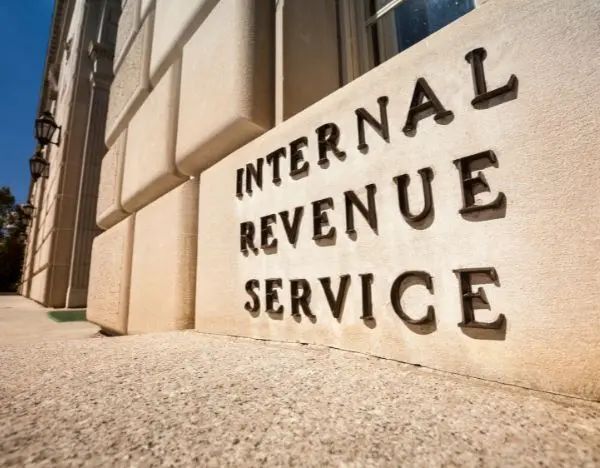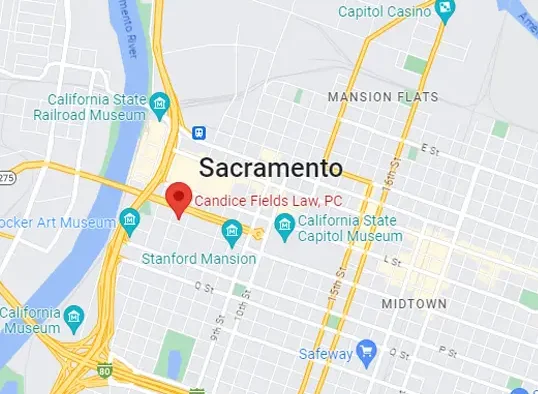When Does The IRS Pursue Criminal Charges?

Navigating the complexities of tax law, we understand how the line between simple mistakes and activities that might attract the IRS's attention for criminal charges can appear blurred. At Candice Fields Law, PC, we leverage our experience in white-collar criminal defense to highlight crucial considerations for individuals and businesses. In this blog post, we delve into the circumstances under which the IRS may decide to pursue criminal charges, providing valuable insights to help you remain compliant and on the right side of the law.
What are IRS Criminal Investigations?

The IRS Criminal Investigation Division (CID) is tasked with investigating potential criminal violations of the Internal Revenue Code (IRC) and related financial crimes, including tax fraud, tax evasion, and money laundering.
When Does The IRS Pursue Criminal Charges?
The IRS reserves the right to pursue criminal charges in cases where there is clear evidence of intentional wrongdoing or fraud related to tax laws. These situations go beyond simple mistakes or negligence, involving deliberate actions to evade taxes or defraud the IRS. Here are several key circumstances under which the IRS might decide to escalate a matter to criminal charges:
1. Tax Evasion
Tax evasion is one of the most common reasons for the IRS to pursue criminal charges. This involves any attempt to avoid paying taxes owed through illegal means, such as underreporting income, overstating deductions, or hiding money in offshore accounts. The IRS looks for deliberate actions intended to evade the legal duty to pay taxes.
2. Filing False Tax Returns
Submitting a tax return with false information is a serious offense. This could include falsely claiming deductions or credits, reporting less income than actually earned, or not reporting cash transactions. If the IRS believes that the falsification was intentional, it could lead to criminal prosecution.
3. Failure to File Tax Returns
While failing to file a tax return might initially lead to penalties and interest charges, continually failing to file, especially when coupled with other suspicious financial behaviors, can result in criminal charges. The IRS expects taxpayers to file yearly tax returns, and deliberate failure to do so can be considered a criminal offense.
4. Employment Tax Fraud
Employers are required to collect and pay over employment taxes. Willful failure to comply with these requirements, such as not withholding income taxes or Social Security and Medicare taxes from employees' wages, can lead to criminal charges. This also includes pocketing these withholdings instead of sending them to the IRS.
5. Illegal Source Income
Income earned from illegal activities is still taxable. Failing to report such income or attempting to launder money gained from illegal activities can lead to criminal charges for tax evasion or money laundering.
6. Fraudulent Claims
Making fraudulent tax claims, such as falsely claiming tax credits or deductions to which one is not entitled, can lead to criminal investigation and charges. This includes attempts to claim refundable tax credits fraudulently.
Intent Matters
The critical factor in most IRS criminal cases is intent. The IRS must prove that an individual or business willfully intended to defraud the government by not paying taxes owed. Simple mistakes, misunderstandings, or negligence typically do not rise to the level of criminal activity, although they can result in civil penalties and interest.
Signs of an IRS Criminal Investigation
Identifying the early signs of an IRS criminal investigation can be pivotal in preparing a defense strategy. The IRS Criminal Investigation Division operates discreetly, and by the time individuals or businesses are notified of an investigation, substantial evidence may already have been gathered. Recognizing these signs can provide crucial time to seek legal representation and prepare a response. Here are expanded details on potential indicators of an IRS criminal investigation:
Unusual Banking Activity
An early sign of an IRS investigation might include unusual or unexpected activity within your bank accounts. This could involve frozen accounts, banks refusing transactions without clear reasons, or inquiries from financial institutions about specific transactions. The IRS may issue summonses to banks to collect information about your financial activities as part of their investigation.
Direct Contact by Special Agents
IRS special agents may directly visit your home or business without prior notice. Unlike regular IRS auditors, special agents are part of the Criminal Investigation Division and carry badges and credentials. These visits can be unannounced and are intended to catch suspects off-guard, hoping to gather spontaneous information that can aid their investigation.
Interviews of Peers by the IRS
If colleagues, business partners, or even financial advisors begin receiving questions from the IRS regarding your financial activities, this could be a sign of an ongoing criminal investigation. The IRS often interviews third parties to collect additional evidence and build a stronger case before making direct contact with the subject of the investigation.
Subpoenas for Financial Records
Receiving a subpoena for financial records is a more overt indicator of a criminal investigation. A subpoena legally compels you to provide the requested documents and is often used in the advanced stages of an investigation. This can include bank statements, tax returns, and other financial documents.
Legal Representation Contacted
In some cases, the IRS may contact your legal representation directly as part of their investigation. If your attorney informs you that the IRS has contacted them regarding your financial activities, this is a strong indication that a criminal investigation may be underway.
Changes in Tax Professional's Behavior
If your accountant, tax preparer, or financial advisor suddenly becomes evasive, refuses to answer questions about your taxes, or discontinues their services without clear reasons, it may be because the IRS has contacted them. Tax professionals may be legally obligated to cooperate with IRS investigations and could be interviewed as witnesses.
Steps to Take if You Are Under Investigation by the IRS
Being under investigation by the IRS, especially its Criminal Investigation Division, can be a profoundly stressful and intimidating experience. Taking immediate and informed actions is crucial if you suspect or know you are being investigated. Here are expanded steps on what to do if you find yourself in this situation:
1. Understand the Seriousness
Acknowledge the seriousness of an IRS investigation. Unlike routine audits, criminal investigations by the IRS suggest that they believe there is substantial evidence of tax fraud or another tax-related crime. Understanding the gravity of the situation is the first step towards addressing it effectively.
2. Avoid Direct Communication with the IRS
Do not try to handle the situation by yourself or attempt to communicate directly with the IRS agents conducting the investigation. Anything you say can be used against you. Direct communication without legal representation could inadvertently provide them with additional evidence or lead you to make self-incriminating statements.
3. Seek Legal Representation Immediately
As soon as you suspect that you are under investigation, contact a reputable law firm that specializes in tax law and, more specifically, in defending against IRS criminal charges. An experienced tax attorney can guide you through the process, communicate on your behalf, and work to protect your rights. Legal representation is invaluable in navigating the complexities of tax law and IRS procedures.
4. Preserve All Relevant Documentation
Begin gathering and preserving any documents that could be relevant to your case, including tax returns, financial statements, emails, and correspondences related to your taxes. Your attorney will help you determine which documents are important. Do not destroy any documents, as this can be seen as obstructive behavior and potentially lead to additional charges.
5. Comply with Legal Obligations
While under investigation, it's crucial to continue complying with all tax laws and filing requirements. Failure to do so can exacerbate your situation. Your attorney can advise you on how to manage ongoing tax obligations and any actions you need to take to rectify past returns if necessary.
6. Prepare for Financial Scrutiny
The IRS may scrutinize your financial accounts, transactions, and assets. Understanding your financial situation in detail can help in preparing a defense. Your attorney might work with financial experts to analyze your records and construct a factual rebuttal to the IRS's allegations.
7. Consider the Impact on Your Business
If you own a business, the investigation could impact its operations, especially if the IRS places liens or levies on your business assets. Discuss with your attorney the potential outcomes and strategies to protect your business during the investigation.
8. Maintain Privacy
Keep the details of your case private. Discussing your situation with friends, family, or colleagues could inadvertently spread information that might find its way back to the IRS. The only person you should be discussing your case with in detail is your attorney.
9. Stay Calm and Organized
Facing an IRS criminal investigation can be emotionally taxing. Staying calm and organized can help you make rational decisions and effectively work with your legal team. Focus on the steps you need to take and rely on your attorney for guidance and support.
10. Explore All Options
Your attorney can help you understand the potential outcomes of the investigation and explore all available options. This might include negotiating a settlement, contesting the IRS's allegations in court, or cooperating with the investigation in exchange for a more lenient penalty.
How a White-Collar Criminal Defense Lawyer Can Help
At our law firm, we understand the complexities and nuances of facing white-collar criminal charges. These types of cases involve sophisticated legal issues and require a deep understanding of both the law and the financial practices under scrutiny. Here's how a white-collar criminal defense lawyer from our firm can assist you:
- Experienced Legal Strategy: Tailored defense based on case specifics, including analyzing evidence and identifying weaknesses in the prosecution's case.
- Negotiation Skills: Achieving favorable outcomes through skilled negotiation, potentially avoiding trial with plea bargains or reduced charges.
- Complex Laws Navigation: Up-to-date knowledge on evolving white-collar criminal laws to ensure innovative and current legal defense.
- Protection Against Overreach: Shielding clients from governmental overreach, ensuring a fair process and protecting rights.
- Financial Experience: Collaboration with financial experts to dissect complex financial transactions crucial for defense.
- Crisis Management: Advising on managing the case's public and professional impact, protecting reputations.
- Emotional Support: Offering guidance through the stress and uncertainty of facing white-collar charges.
- Compliance Advice: Providing strategies for future legal compliance to prevent additional legal issues.
Act Now: Secure Your Defense
Navigating an IRS investigation requires experience. At Candice Fields Law, PC, we have experience in robust defenses against IRS and white-collar criminal charges. With our experience, we protect your rights and aim for the best outcome. Don't face this challenge alone.
Contact us today for a confidential consultation and take control of your future.





